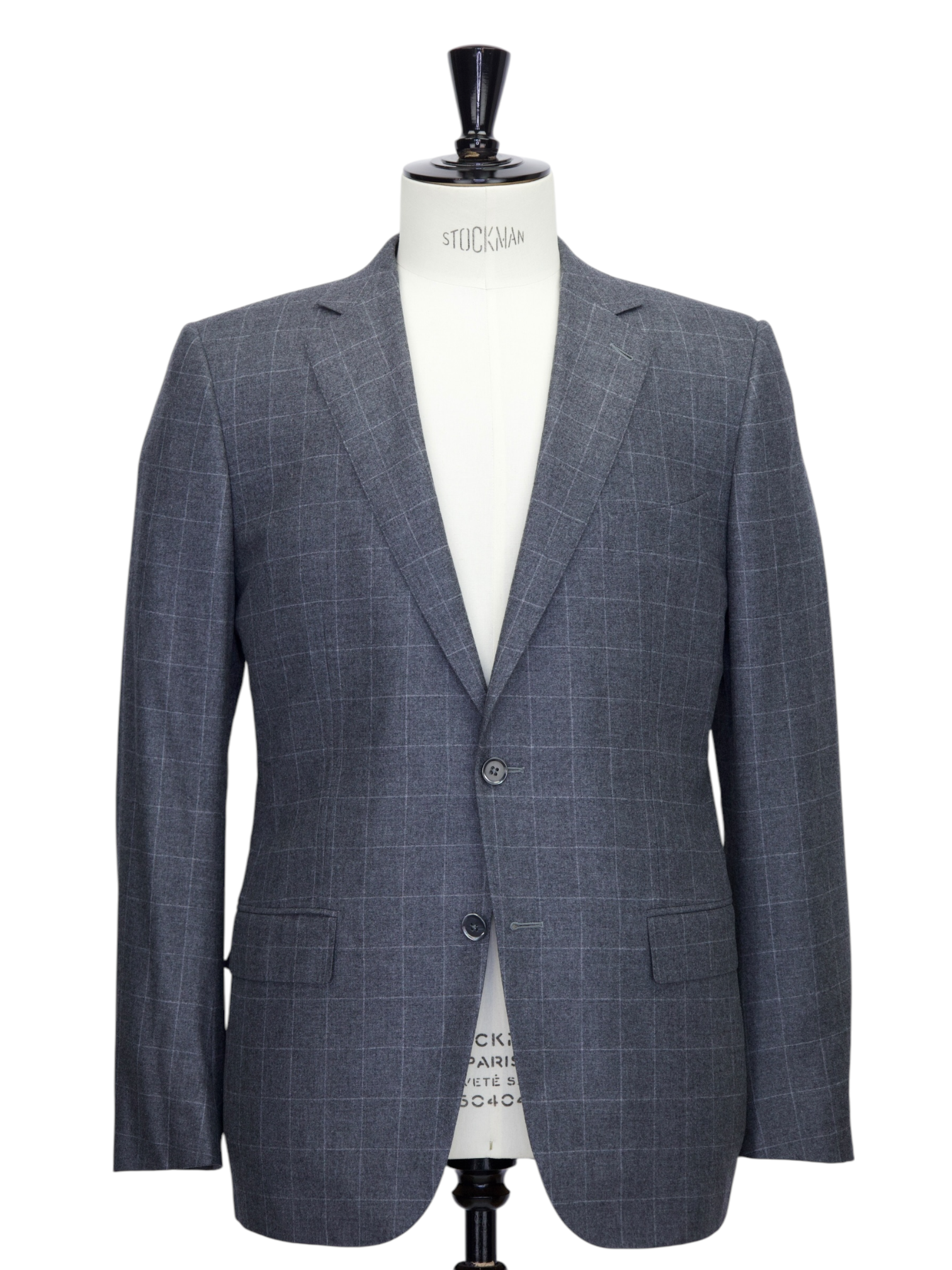
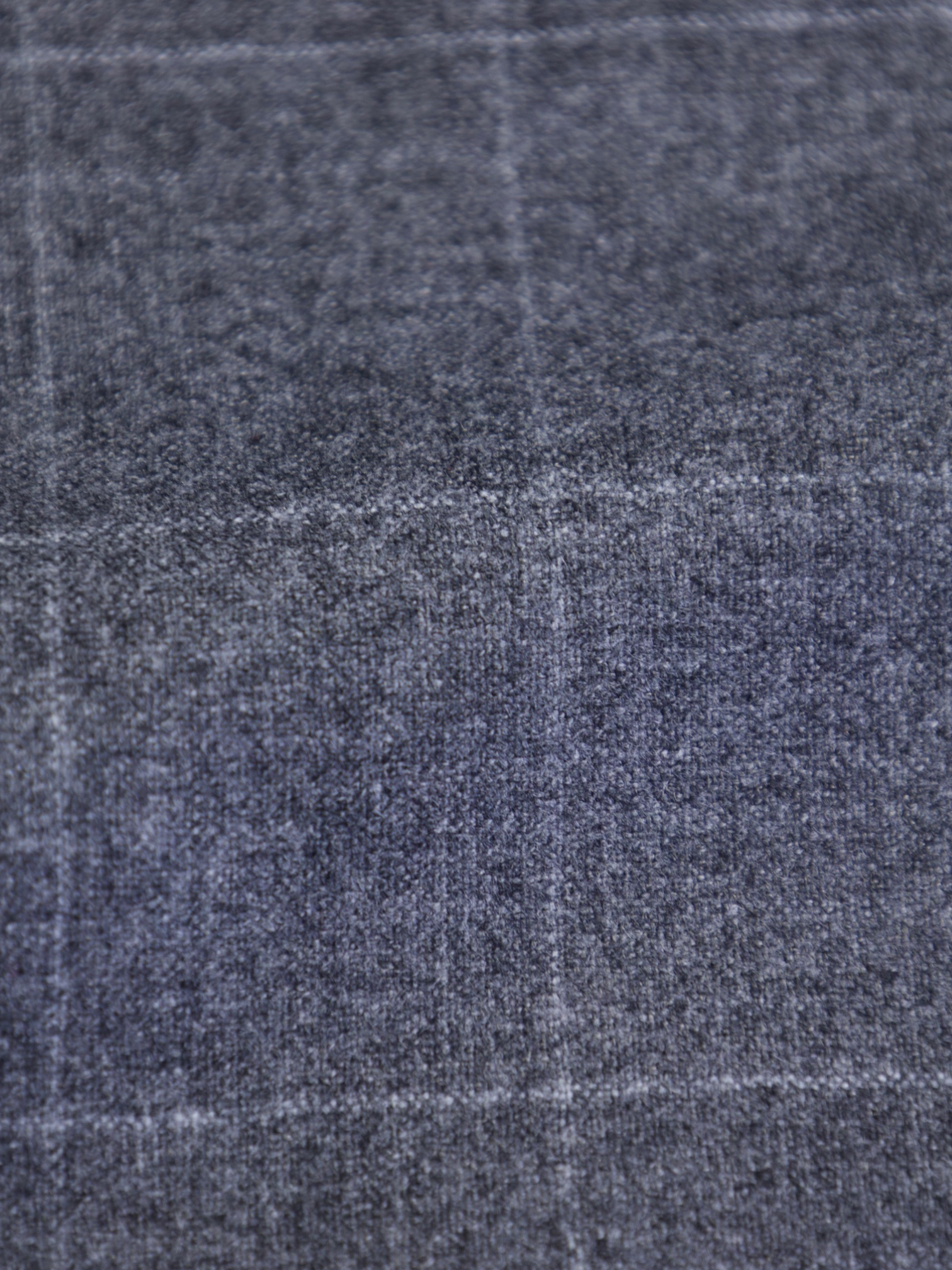
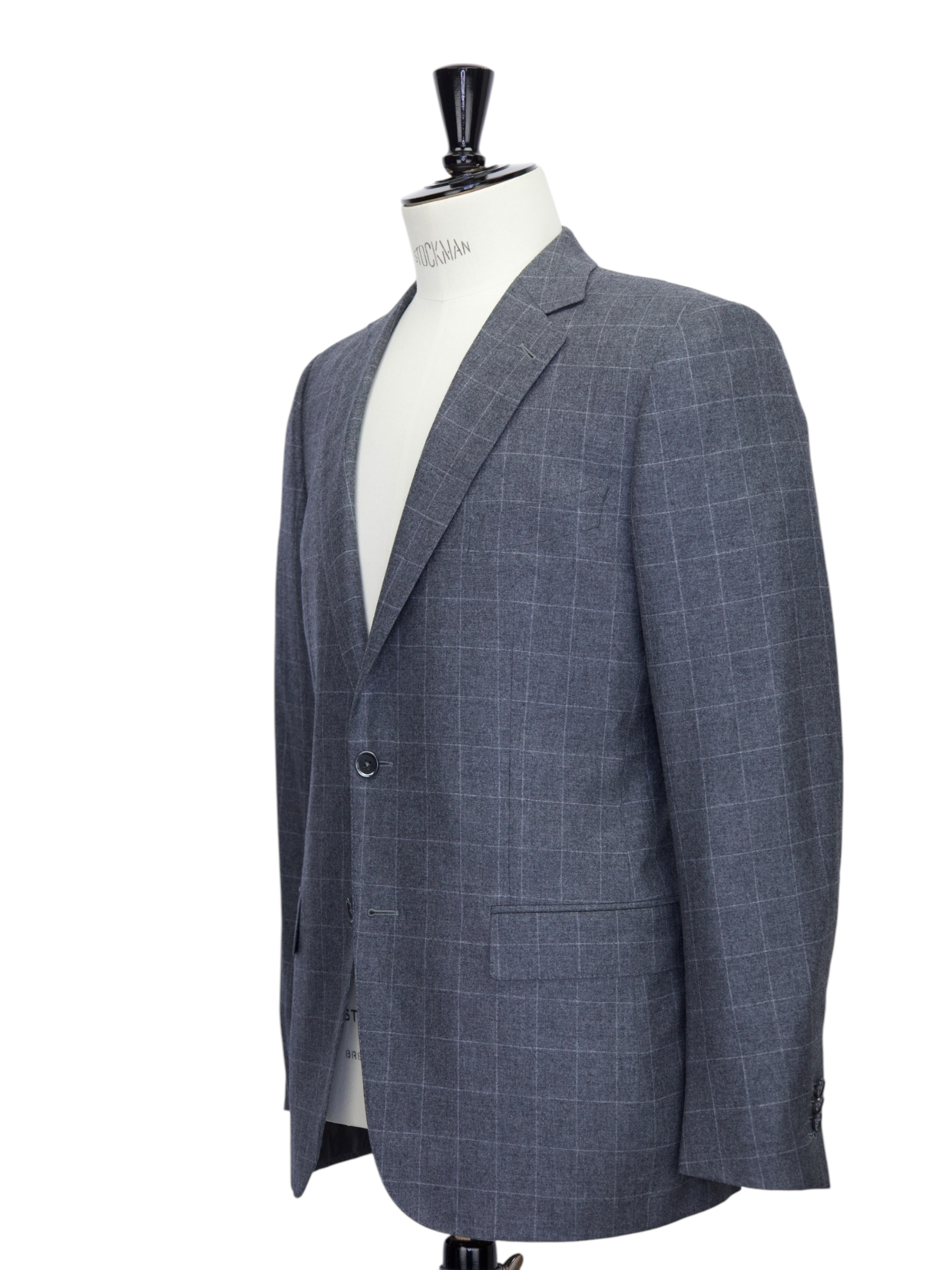
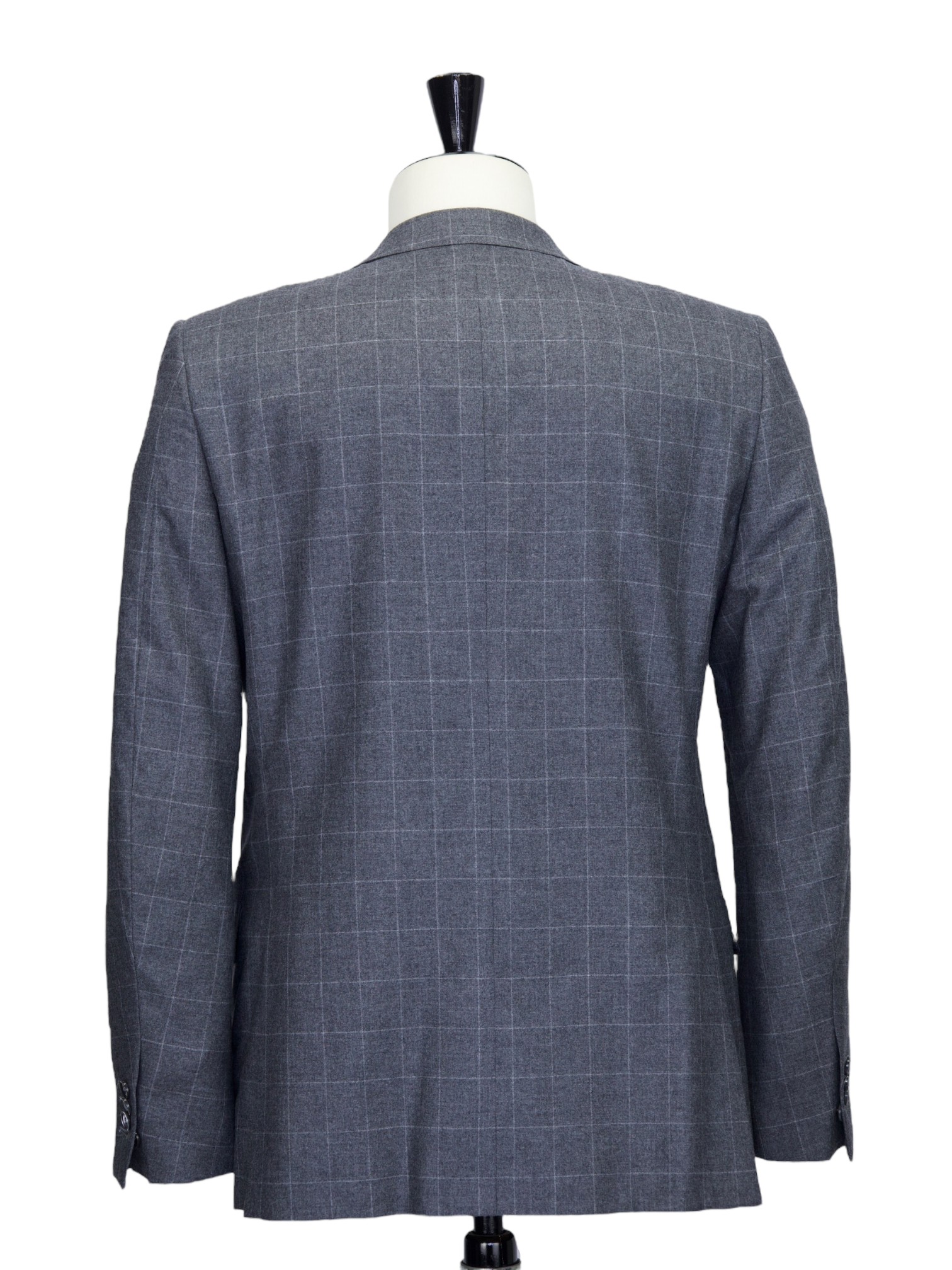
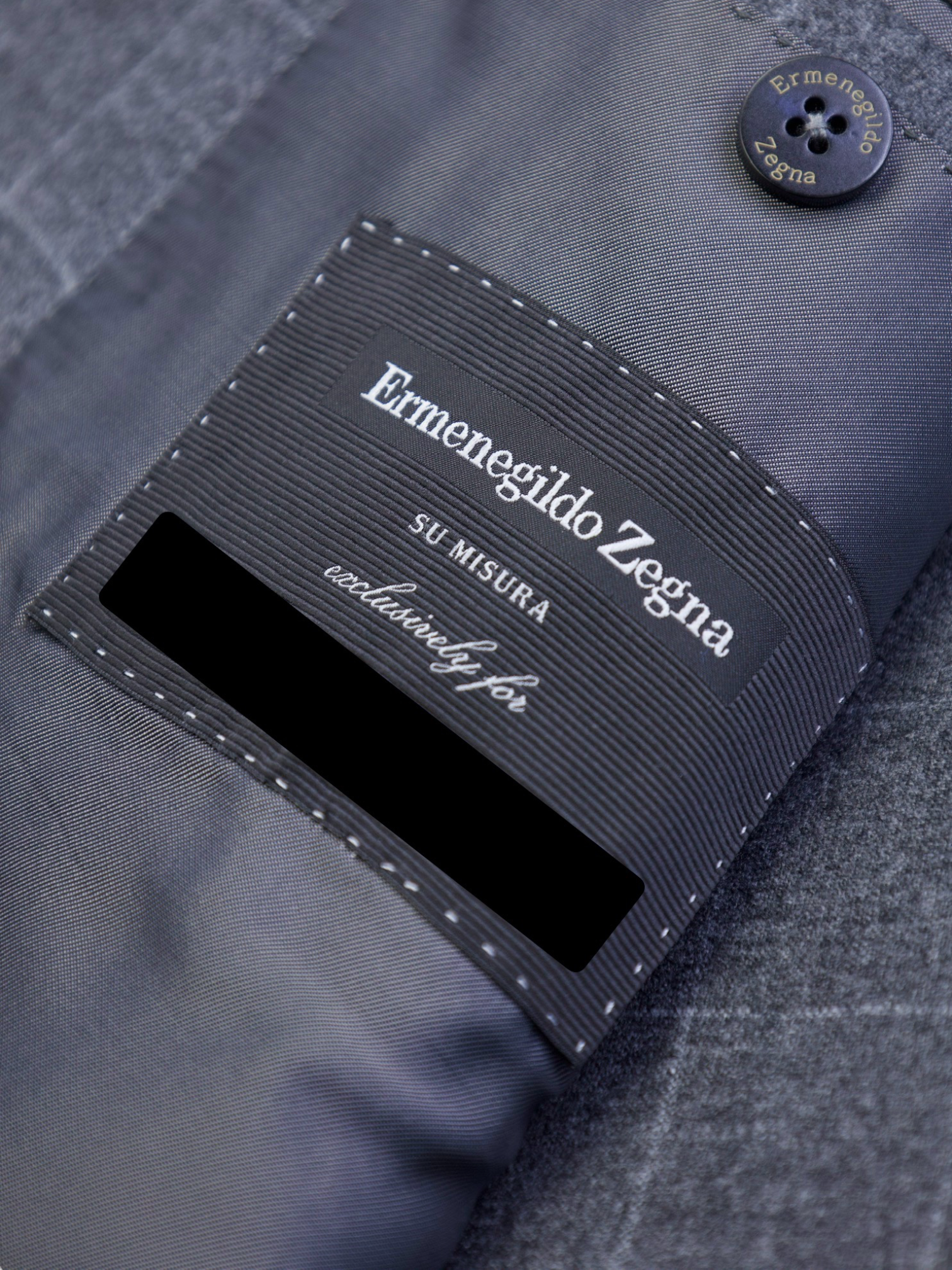
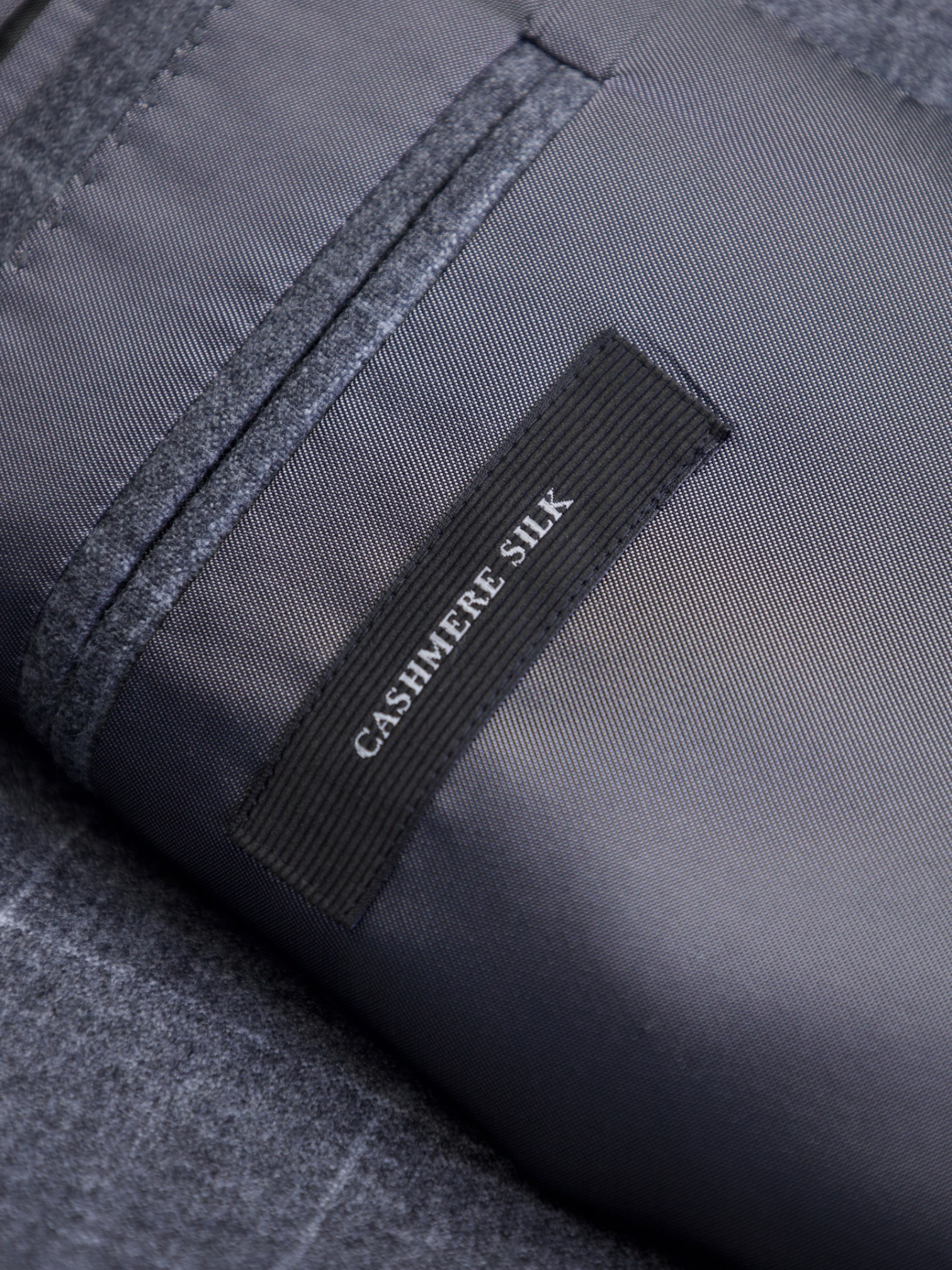
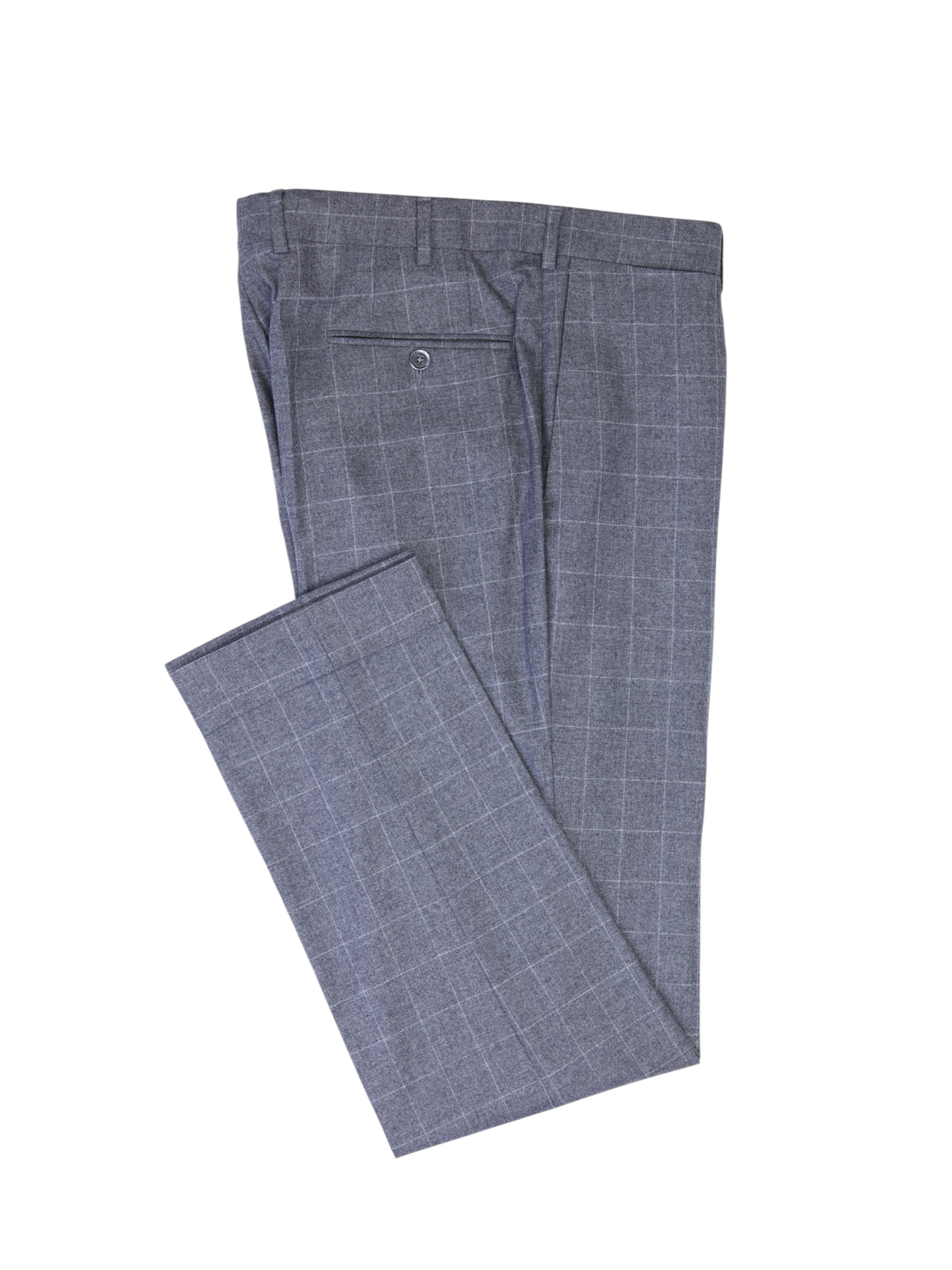
Ermenegildo Zegna Grey Cashmere & Silk Windowpane Suit
52 IT / 42 US / Large
Discover the Ermenegildo Zegna Grey Cashmere & Silk Windowpane Suit, a sophisticated expression of modern tailoring. Crafted from an exquisite blend of cashmere and silk, this suit offers a luxuriously soft texture with a slight sheen, ensuring a polished and elevated appearance. The muted grey hue is elegantly accented with a subtle windowpane pattern, adding depth and a contemporary edge to its timeless design. The single-breasted jacket features notch lapels, a two-button closure, and a fully lined interior, while the trousers are impeccably tailored for a refined, flattering silhouette.
Ermenegildo Zegna’s legacy of exceptional craftsmanship is evident throughout this ensemble. The cashmere-silk fabric is carefully woven to achieve an ideal balance of comfort, durability, and elegance. Hand-finished details, such as perfectly aligned patterns and precision-sewn buttonholes, showcase Zegna’s artisanal expertise. Tailored in Italy, this suit embodies the brand’s commitment to impeccable design, making it a versatile choice for both formal occasions and high-level business settings. This is a true investment piece for the modern gentleman seeking understated luxury.
Composition: 92% Cashmere / 8% Silk
Color: Grey
Pattern: Windowpane
See how we measure our sartorial items
Discover the customization possibilities by visiting our tailor alteration guide
Shipping
- Complimentary shipping on orders over €200 (Netherlands), €500 (EU), and €1,000 (rest of world).
- Orders under these amounts: shipping rates depend on your country.
- Customs duties or import fees may apply and are the customer’s responsibility. The courier may charge additional fees.
Returns
- You have the right to return your order within 14 days of delivery.
- If you wish to return an item, please notify us within 48 hours of receiving your order.
- Return shipping is at the customer’s expense.
- A 10% restocking fee will be deducted from your refund for all returns.
Please carefully review all measurements and quality control notes in the listing before purchasing. Return shipments have an environmental and economic impact. For any questions or if you need help, feel free to contact us before placing your order.
General Note: While we inspect each item to ensure its quality, please note that minor imperfections may be present due to the preloved nature of the garments. We strive to represent every item accurately, but subtle signs of wear may sometimes go unnoticed. We appreciate your understanding and commitment to sustainable luxury.
Choose options







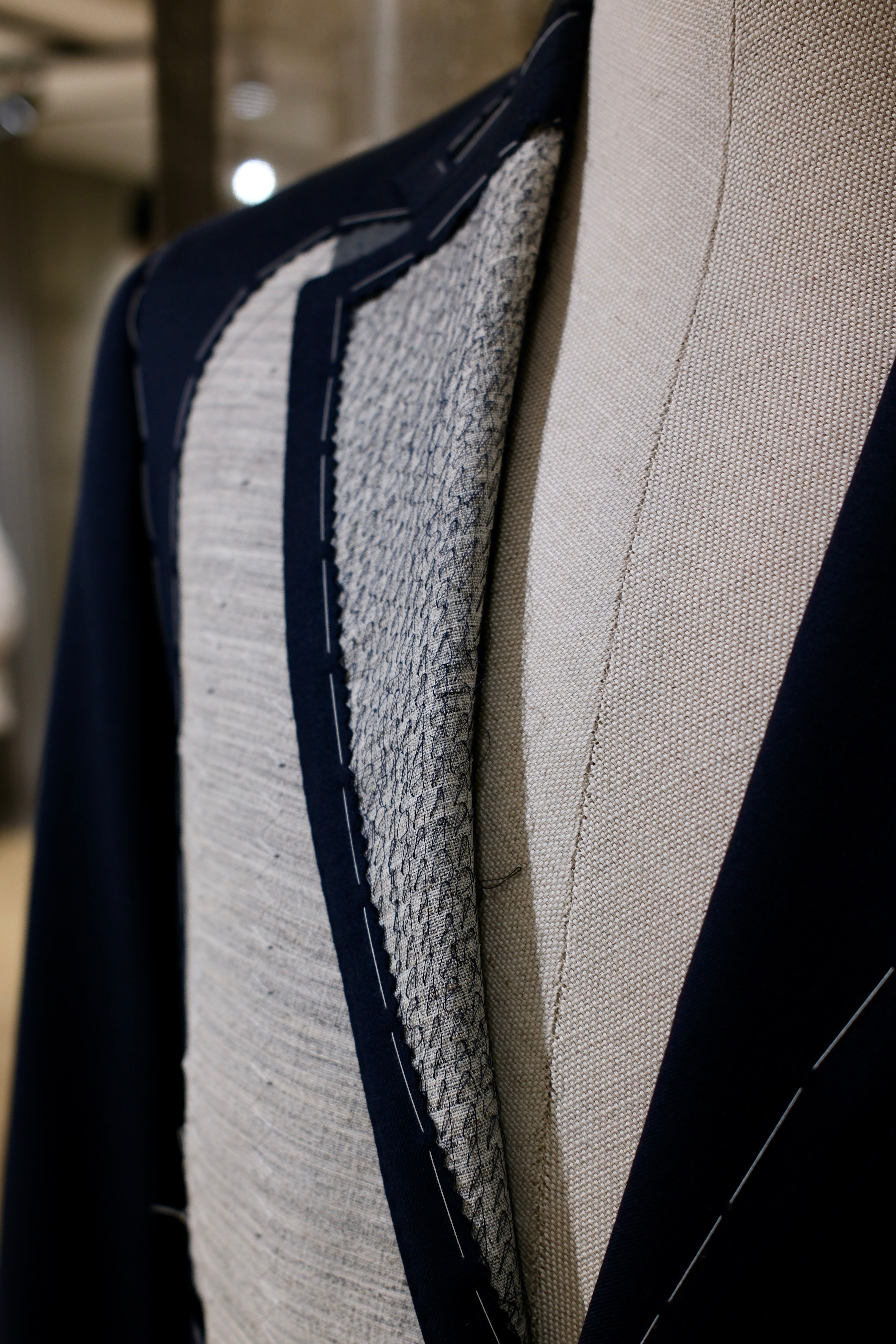
Discover the
Sartorial Details

Full Canvas Construction
A sartorial jacket - or coat - needs an interlining that will help give it shape and mold it. Canvas gives the item a tailored and crafted look. In short, it breathes life into it. Purely technical, canvas is made from either horsehair, wool, mohair or camel hair. It could also be a mix of them all, with varying thickness and weight. The canvas is stitched to the jacket, often by hand, thus making the canvas pieces 'floating' in the middle of the inner and outer cloth. This gives the jacket added flexibility. The canvas runs from the upper parts, all the way down to the end of the jacket. After you wear your canvassed suit for a while, it will begin to take your shape and look incredibly natural.
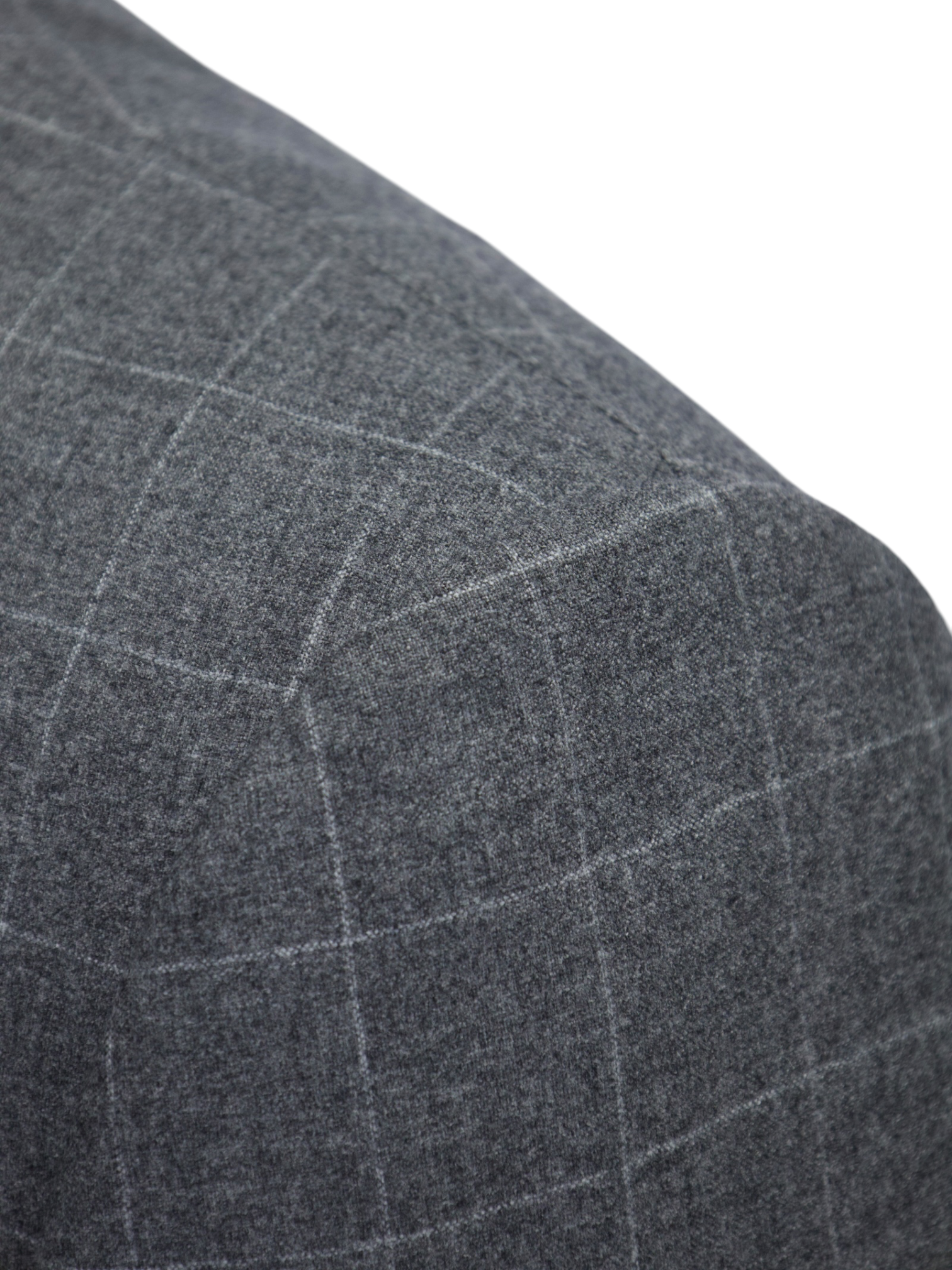
Soft Shoulders
Soft Shoulders, or lightly padded shoulder construction, gives a softer, more casual silhouette to a tailored jacket. Soft shoulders have little padding and follow the contour of the individual’s shoulder to accentuate the wearer’s natural features.
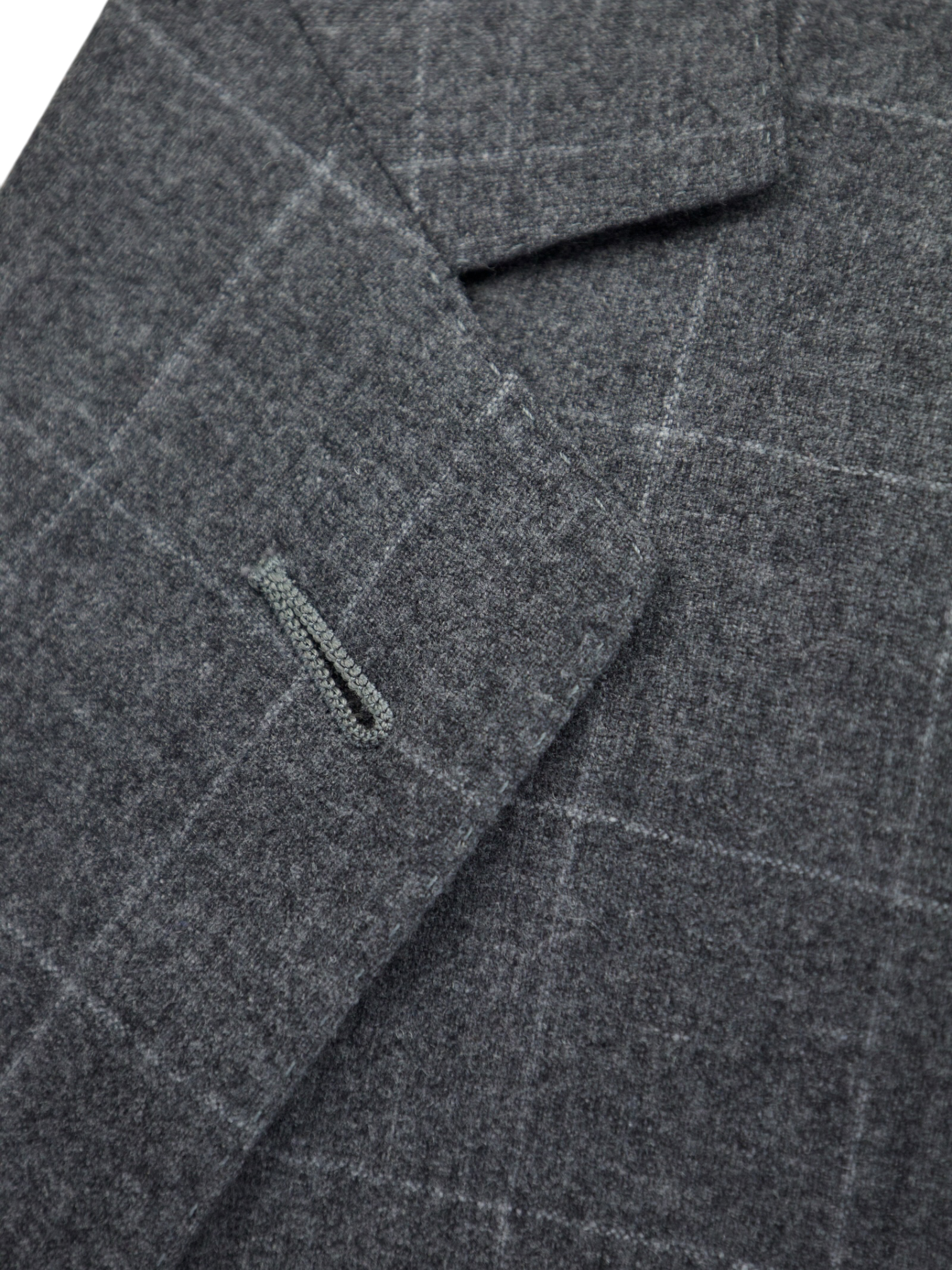
Handmade Buttonhole
Handmade buttonholes are made using a chain of knotted loops called purl stitches that make them strong and visually distinctive. It takes about five seconds to sew a regular buttonhole with a machine – a single handmade buttonhole takes about 10 minutes to sew.
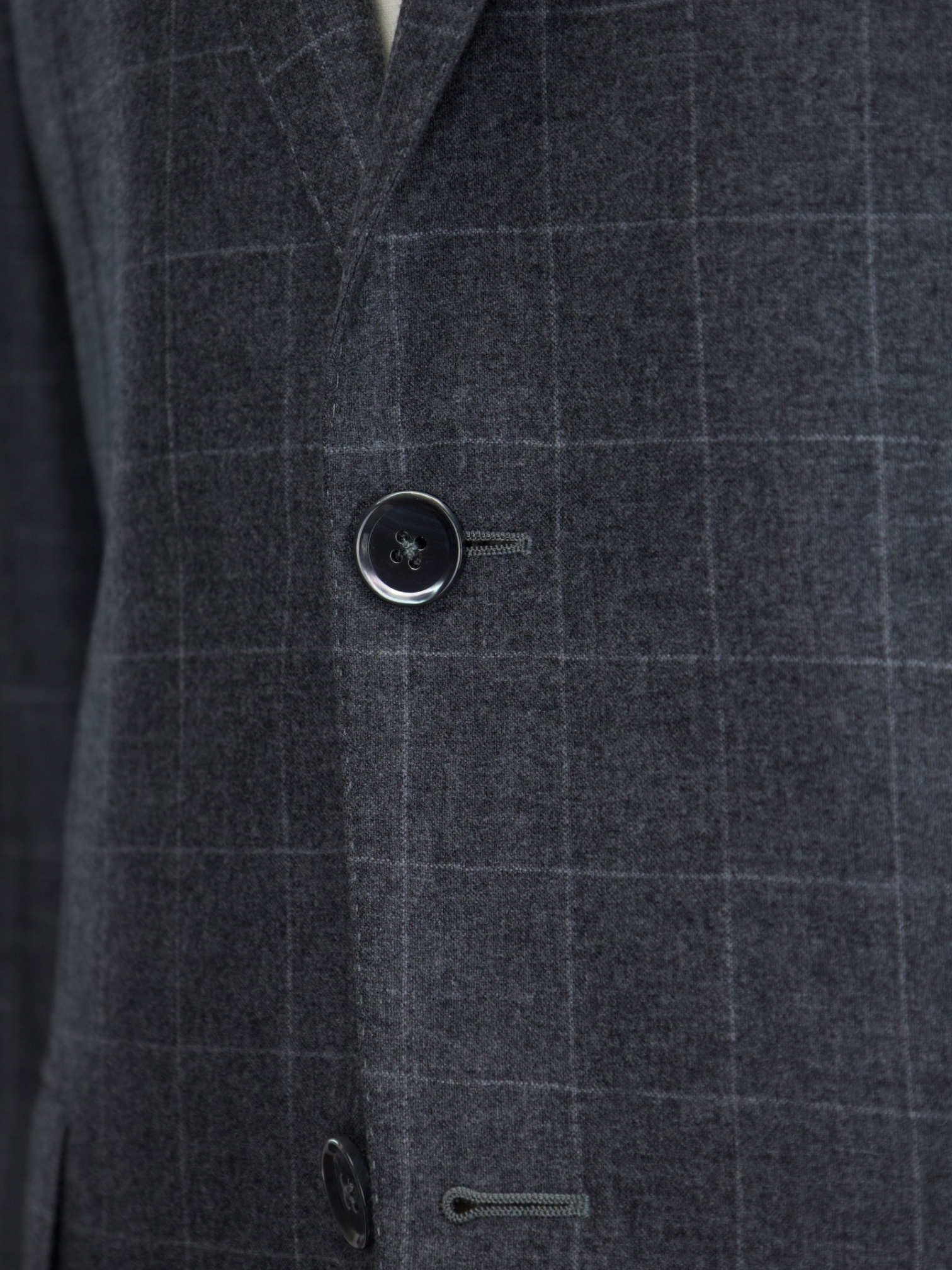
Two-Button Closure
The jacket has a two-button closure which keeps the profile neat.
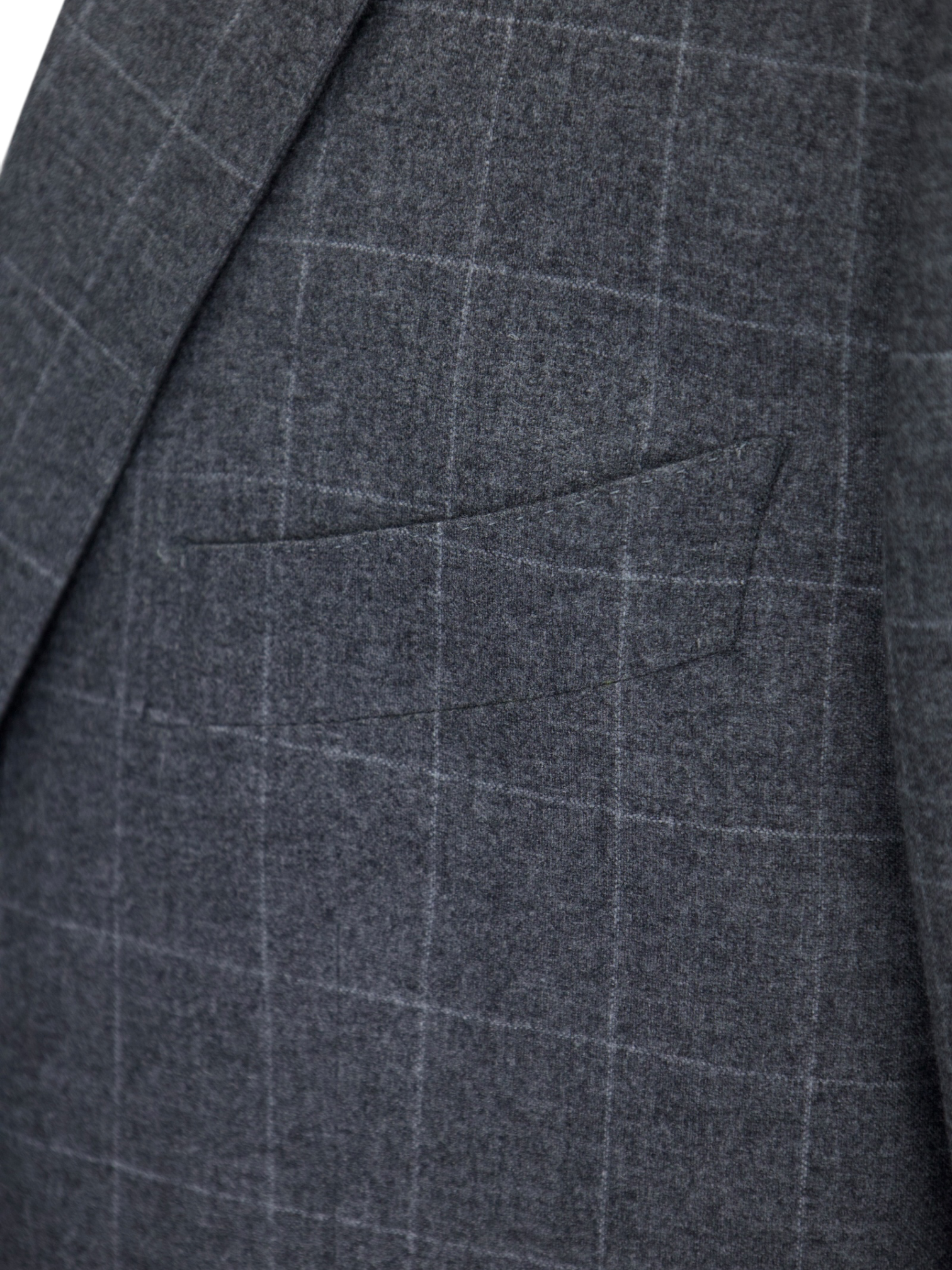
Chest pocket - Rounded welt pocket
Also known as ‘barchetta’ Italian for ‘little boat’, it is so named because this pocket floats on the chest gently angled upward, just like the bow of a sailboat. These pockets echo the lively roll of a lapel that carries the spring of canvas and natural wool, unlike machine-made chest pockets that have a more stamped-out, rectangular shape and less life.
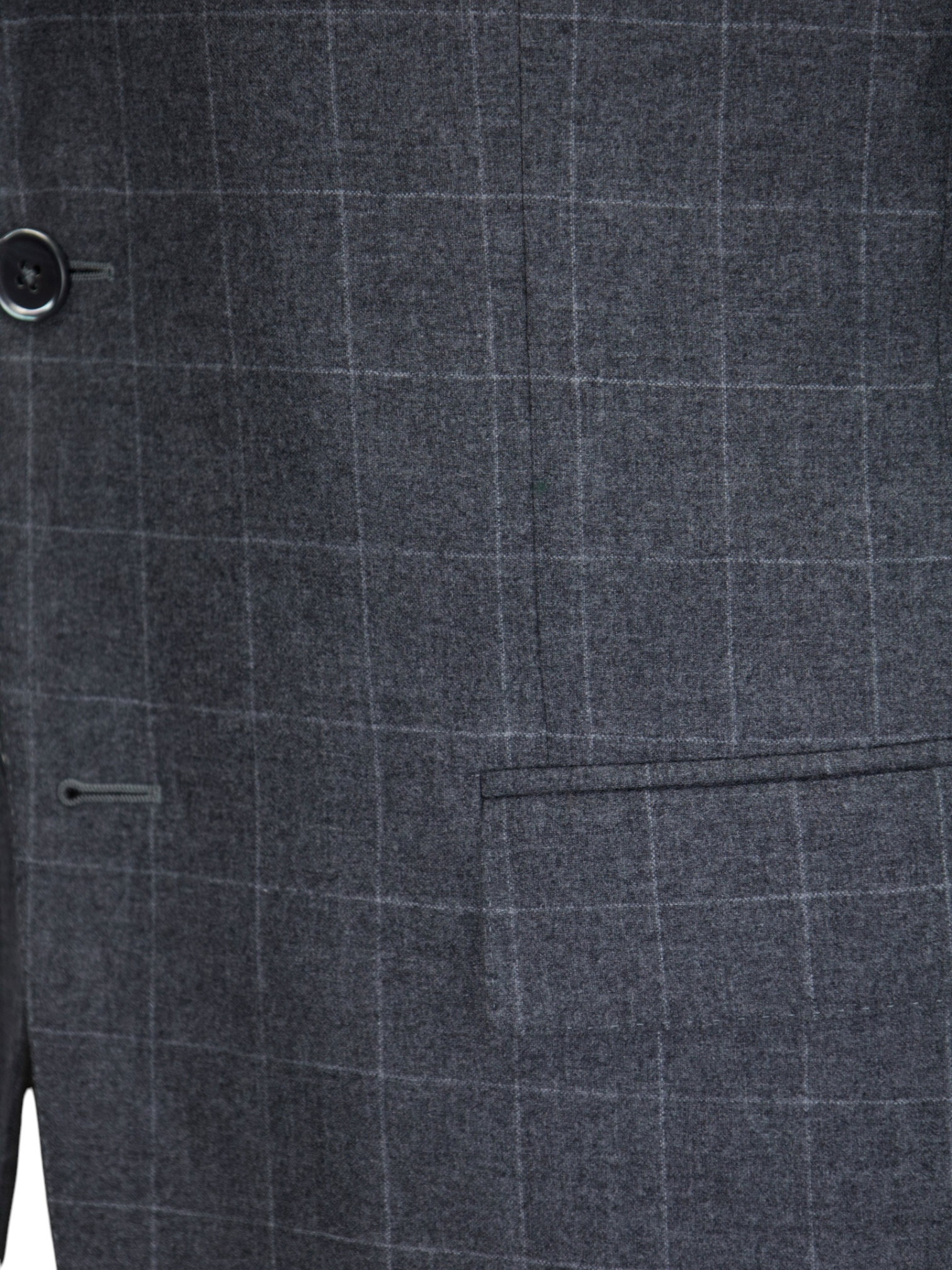
Darts
The tailors adds two darts - think of them as pinched seams - to ensure the jacket’s body achieves a slim silhouette. The process, called mezzo punto riprese, is done entirely by hand.
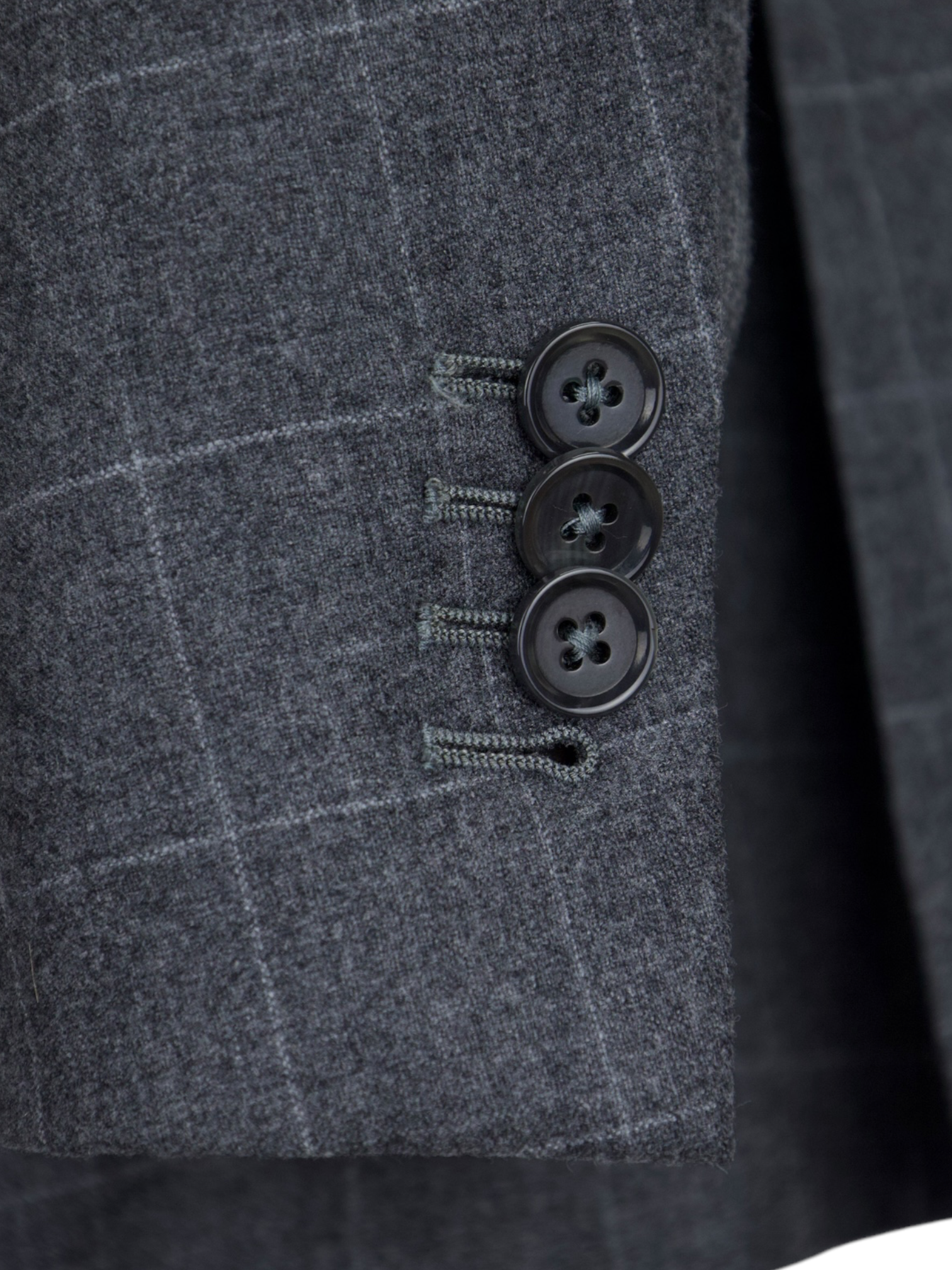
Horn Buttons
Horn buttons are prized for their quality. They are made with the finest genuine horn material, improving the appearance of the suit. And because they are so strong, you don't have to worry about them cracking or breaking.
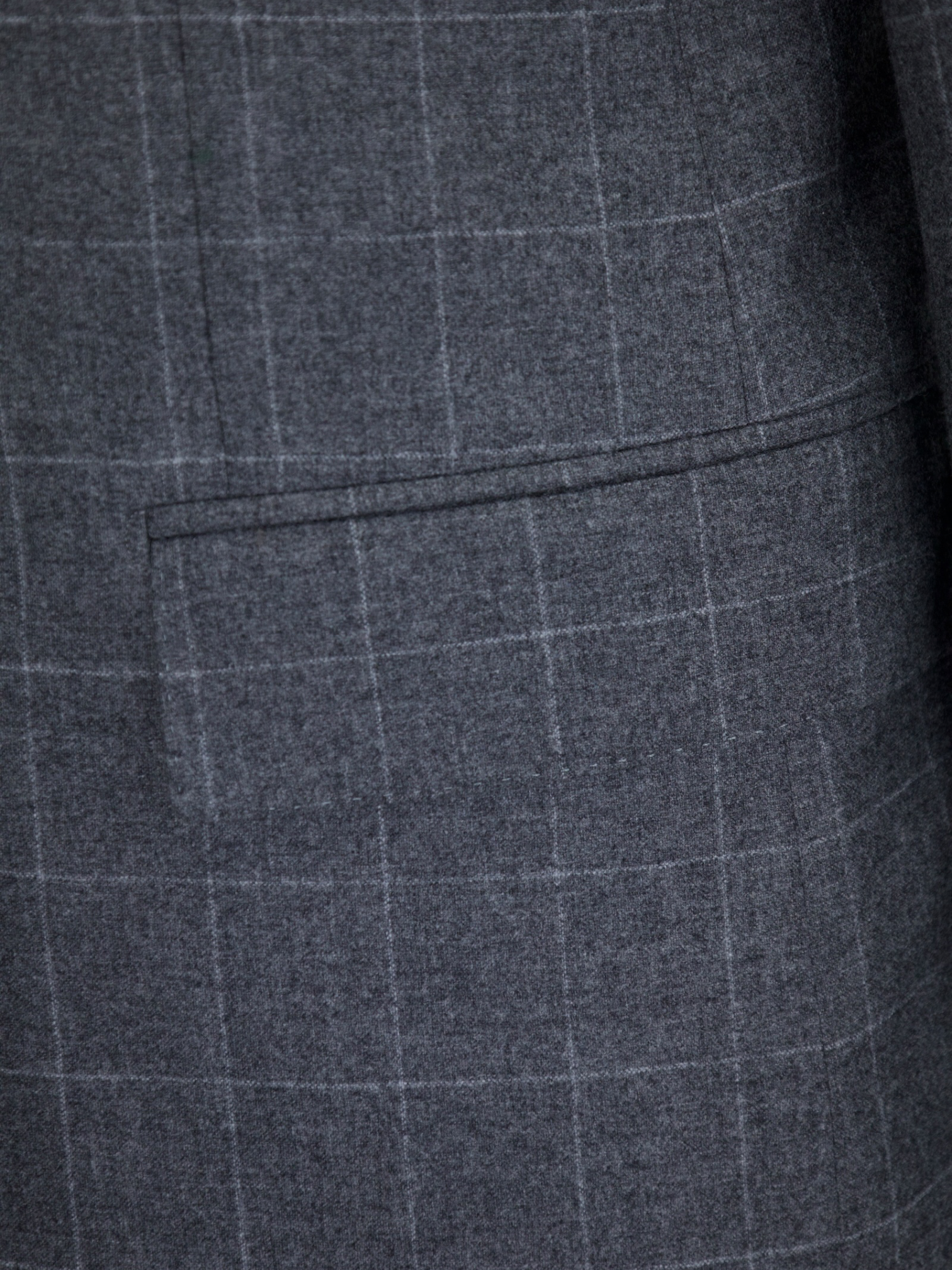
Flap Pockets
This was originally supposed to keep debris from getting into jacket pockets when worn in the country. Flap pockets occupy a sort of middle ground in terms of formality: they are the main choice for business suits, but they can also appear on sport coats as a testament to their casual origins.
the details of
the trousers
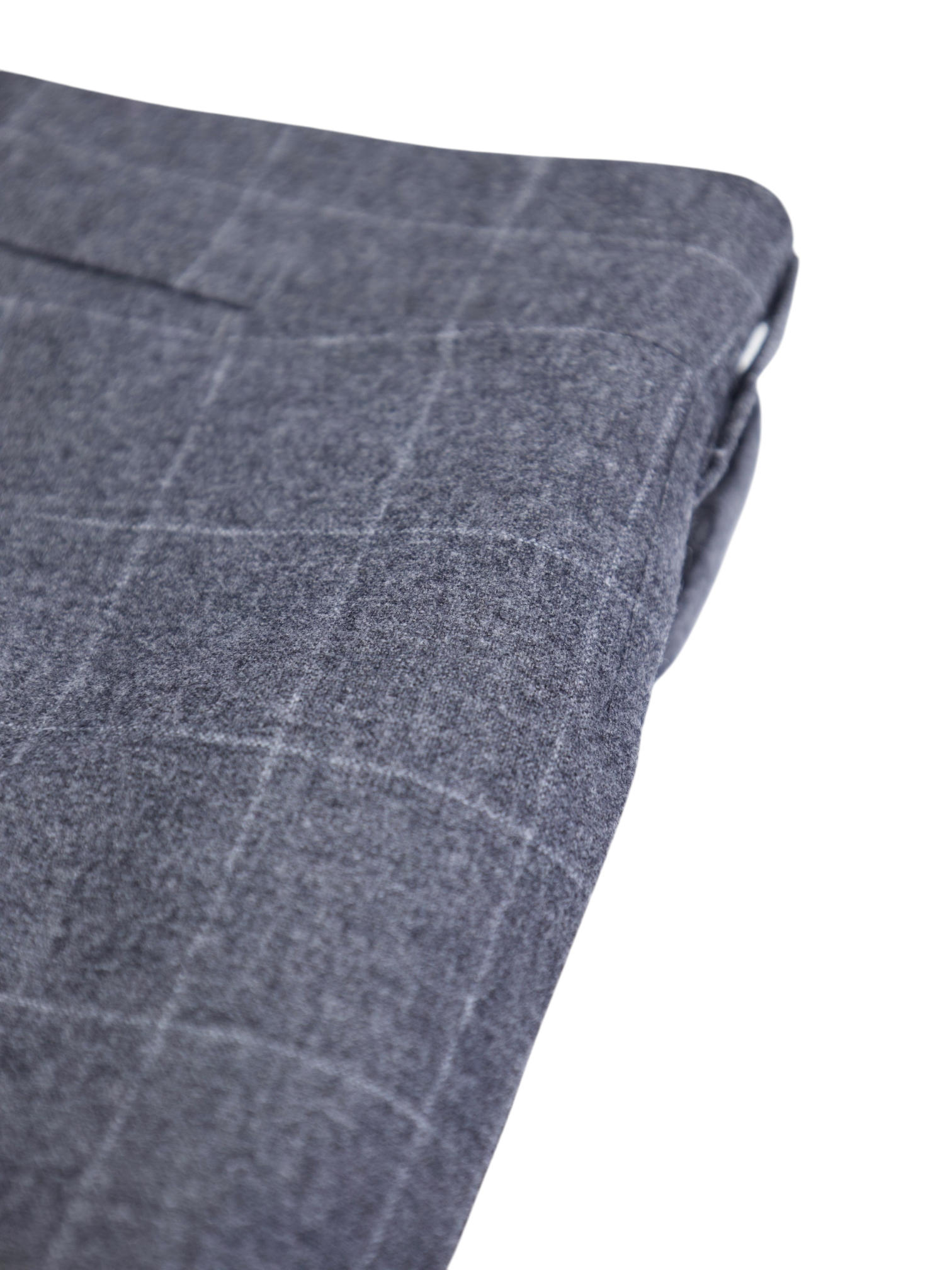
Flat Front
Flat-front trousers are a go-to for a modern, clean look. They became popular in the 1960s and 1970s when fashion started leaning towards simpler, more streamlined styles. Unlike pleated pants, flat fronts have no extra fabric at the waist, giving them a sleek appearance that's perfect for a slimmer silhouette. They fit right into both casual and business casual settings, making them incredibly versatile. As a result, they are a favorite for anyone looking to maintain a contemporary vibe in their wardrobe.
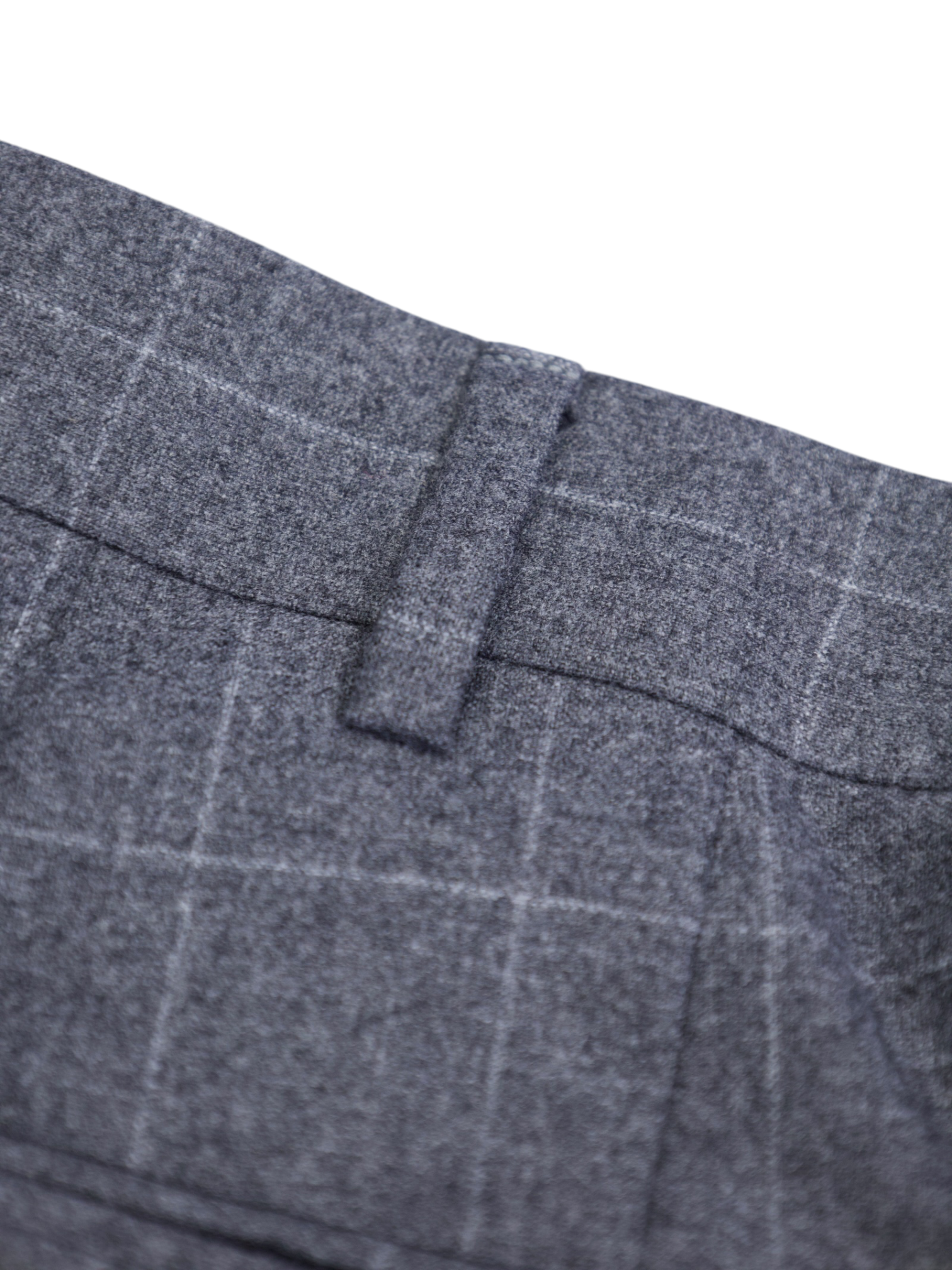
Belt Loops
Belt loops are the most common type of waistband found on trousers, providing the option to wear a belt for both style and practicality. Typically spaced evenly around the waistband, belt loops are a versatile feature that can accommodate a wide range of belt styles and sizes. This traditional waistband design is found in everything from casual jeans to formal dress pants, making it a timeless and adaptable option for any wardrobe. Belt loops offer the flexibility to customize your look while ensuring a secure fit.
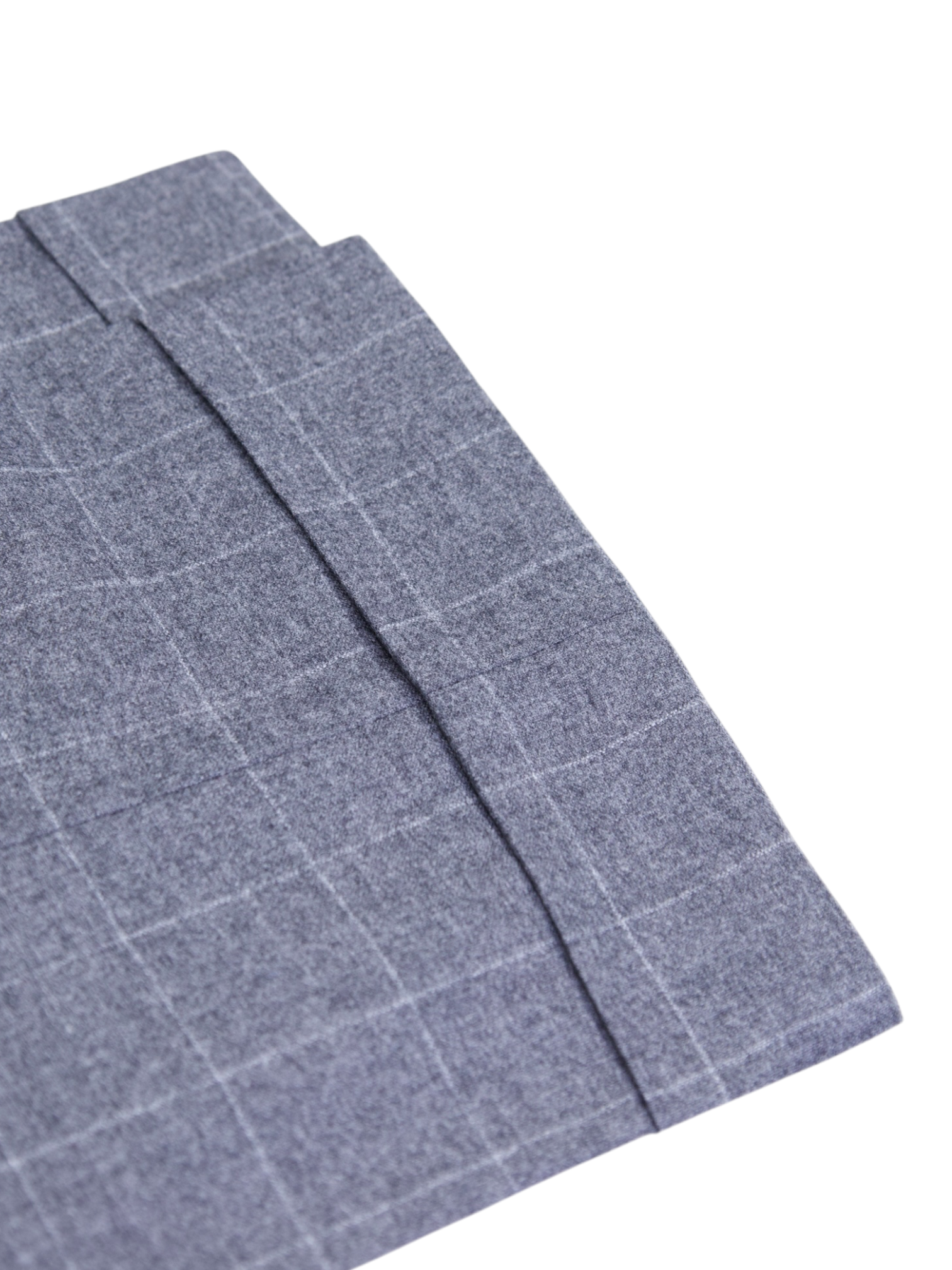
Turn-Up (Cuffed) Hem
The turn-up hem, or cuffed hem, is a classic style where the fabric at the bottom of the trousers is folded outward to create a visible cuff. This style originated with Edward VII in the late 19th century, who had his trousers tailored with cuffs to prevent them from getting muddy, sparking a trend among the fashionable elite. In the 1920s and 1930s, turn-ups became a symbol of wealth and sophistication, as having extra fabric was seen as a luxury. This association continued after World War II when wearing turn-ups subtly indicated affluence in an era of fabric rationing. Today, turn-up hems are a nod to their historical roots, offering a touch of classic elegance and enhancing the overall appearance of formal and tailored trousers.

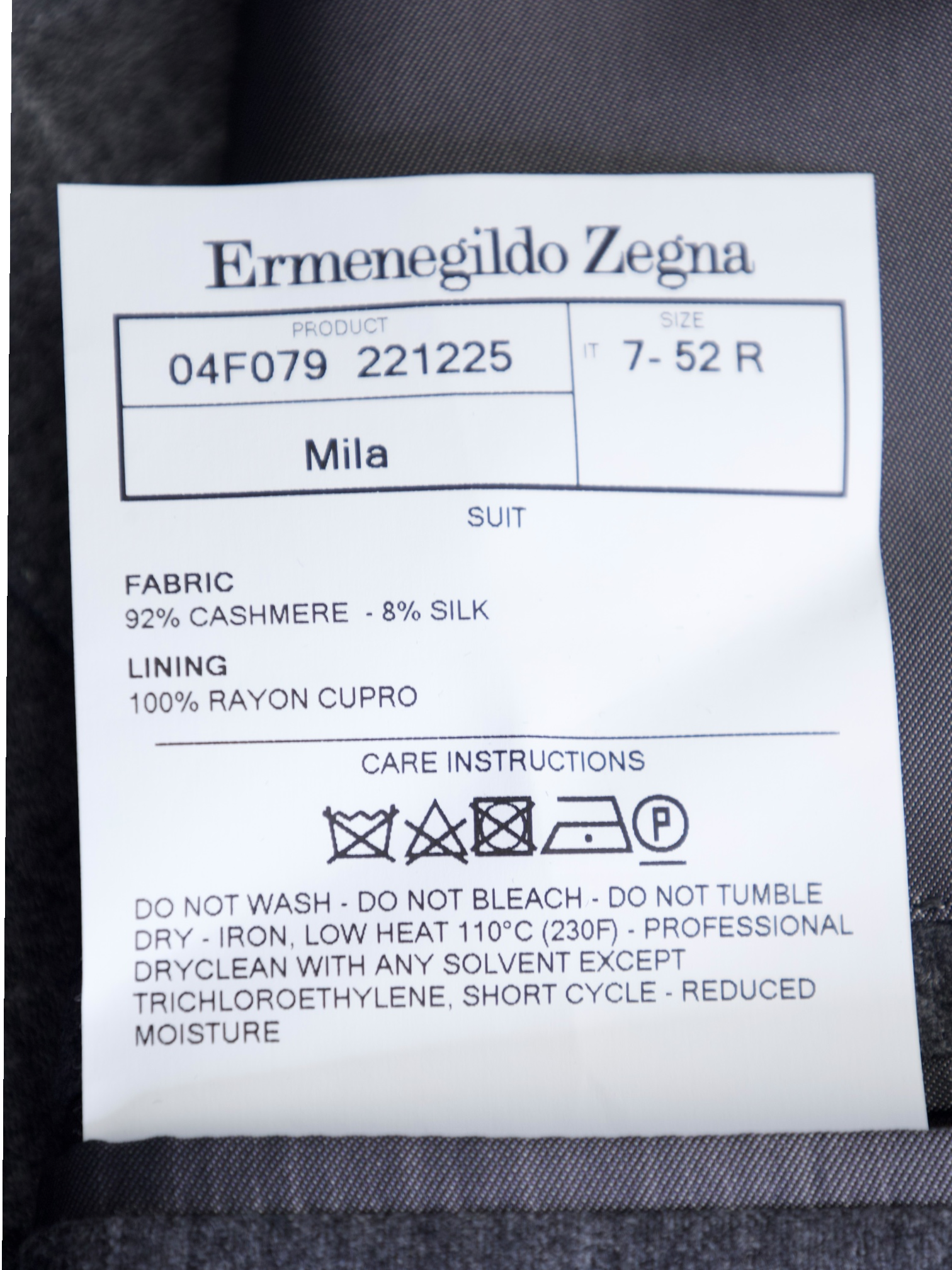
size
52 IT / 42 US / Large


 Curator's Description
Curator's Description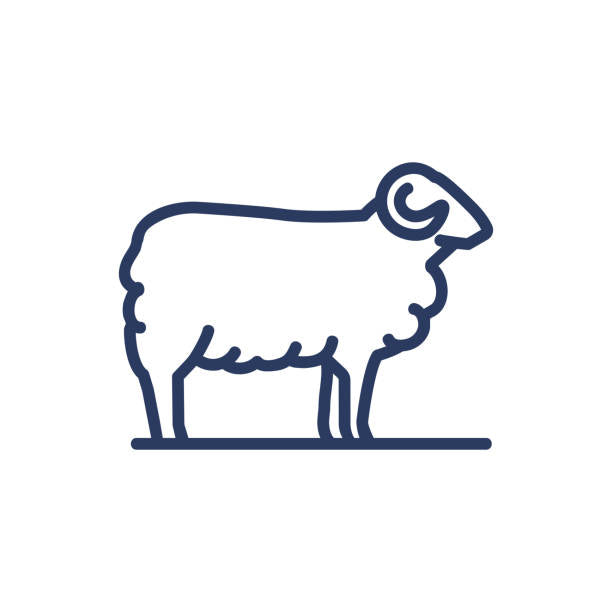 Materials
Materials